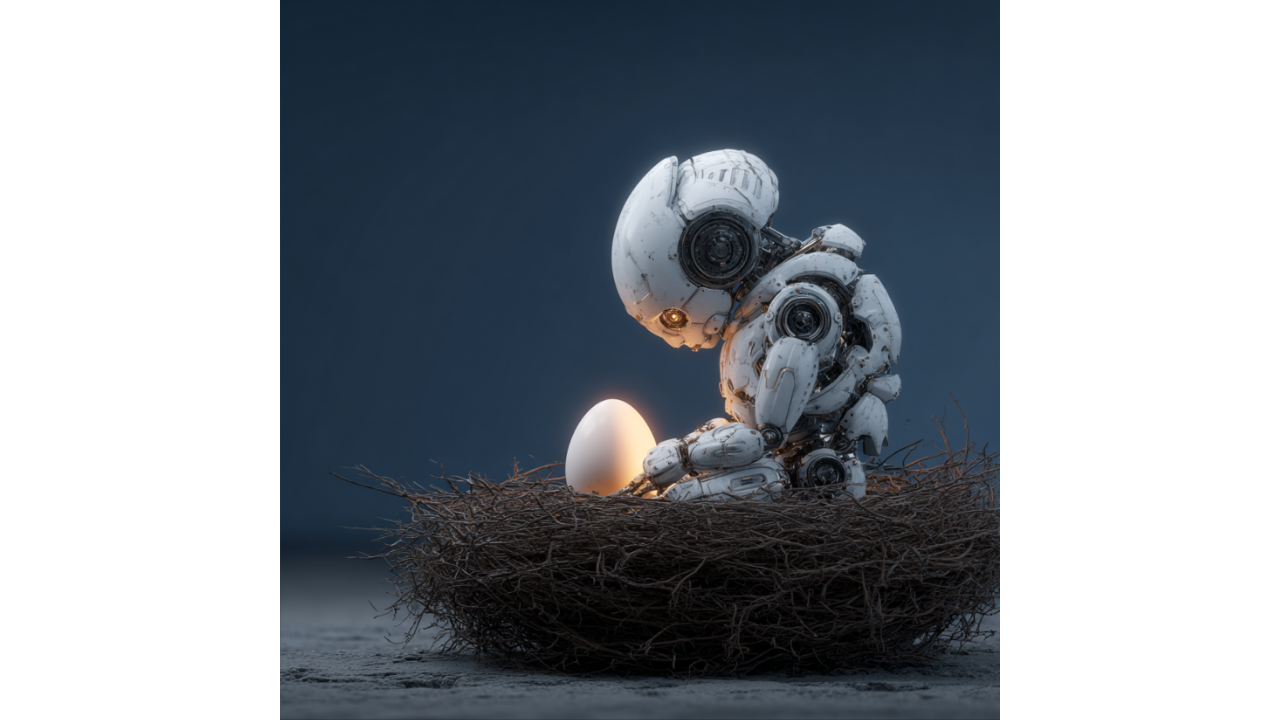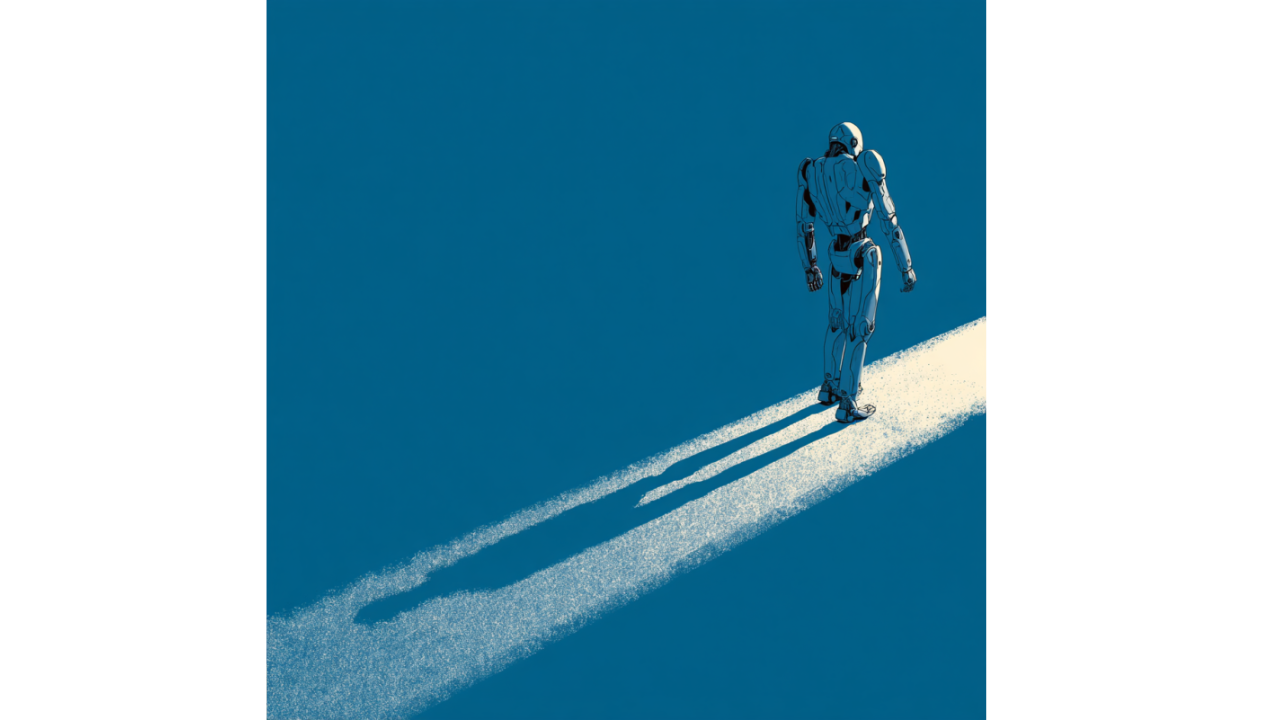Insect Brains Just Schooled AI on Audiovisual Perception
Researchers at the University of Liverpool just developed a computer model that processes audiovisual signals the way human brains do—by borrowing...
5 min read
 Writing Team
:
Sep 3, 2025 8:00:00 AM
Writing Team
:
Sep 3, 2025 8:00:00 AM

The most profound breakthrough in AI development just emerged from Tencent's labs, and it's not another giant model or fancy interface—it's the elimination of humanity's biggest bottleneck in creating artificial intelligence. Tencent's R-Zero framework enables large language models to train themselves from scratch, using co-evolving AI agents that challenge and teach each other without requiring a single human-labeled data point. This isn't just an incremental improvement in AI training efficiency; it's the key to unlocking artificial superintelligence that surpasses the fundamental limits of human knowledge.
The traditional AI development pipeline has always hit the same wall: human expertise becomes the limiting factor. Even the most advanced models like GPT-5 and Claude require massive datasets of human-curated tasks and labels, which means AI capabilities can never exceed what humans can teach them. As Chengsong Huang, the R-Zero co-author from Washington University, puts it: "This is not just about a cost-saving measure; it's a pathway toward creating AI that can surpass human capabilities, because it is no longer limited by the scope of human knowledge or data."
R-Zero solves this fundamental constraint through an elegant co-evolutionary design. Starting from a single base LLM, the framework creates two independent models: a "Challenger" that generates increasingly difficult problems, and a "Solver" that learns to tackle these challenges. The Challenger is rewarded for creating tasks "near the edge of the Solver capability," while the Solver is rewarded for solving increasingly complex problems. This creates a self-improving feedback loop that operates entirely without human intervention.
The empirical results validate this revolutionary approach. R-Zero boosted the Qwen3-4B-Base model's score by +6.49 points on math reasoning benchmarks and +7.54 points on general-domain reasoning tasks. More importantly, these improvements compound over iterations—the larger Qwen3-8B-Base model saw its average math score climb by +5.51 points after just three iterations, with no signs of plateauing.
The traditional data labeling bottleneck isn't just intellectual—it's economic. Creating high-quality training datasets requires armies of human annotators, subject matter experts, and quality control systems that cost millions and take months to deploy. R-Zero eliminates this entire infrastructure overhead by making AI models their own teachers, data curators, and quality controllers.
This represents a fundamental shift in AI economics. Instead of linear scaling where each improvement requires proportionally more human labor, R-Zero enables exponential improvement curves where models become increasingly capable of teaching themselves. The framework's "from zero data" approach means organizations can develop specialized reasoning capabilities in domains where high-quality training data simply doesn't exist or would be prohibitively expensive to create.
For enterprises, this breakthrough could be transformative. Huang notes that R-Zero "entirely bypasses the fundamental bottleneck of having to find, label, and curate high-quality datasets." Companies can now develop domain-specific AI capabilities without the massive upfront investment in data preparation, opening AI development to organizations that previously couldn't afford the data acquisition costs.
What makes R-Zero particularly brilliant is its recognition that "good teachers are far rarer than good students." Traditional AI training assumes we can provide better questions than the model can answer, but R-Zero flips this dynamic. The Challenger model specializes in generating the perfect level of difficulty—tasks that are neither trivially easy nor impossibly hard—while the Solver focuses purely on problem-solving.
This division of cognitive labor mirrors successful educational approaches where specialized curriculum designers create learning experiences optimized for student development. The key insight is that generating high-quality, progressively challenging questions is often more complex than solving them, which is why human curriculum design is so expensive and time-consuming.
The co-evolutionary process creates what researchers call an "uncertainty-driven curriculum" where the Challenger is most rewarded for generating problems where the Solver achieves exactly 50% accuracy—the optimal zone for learning efficiency. This automatic calibration ensures that the training always pushes the model's capabilities forward without wasting computational resources on tasks that are too easy or impossible.
While R-Zero's initial demonstrations focus on mathematical and logical reasoning tasks—domains where correctness can be objectively determined—the framework's implications extend far beyond these areas. Huang suggests the logical next step: adding a third co-evolving agent called a "Verifier" or "Critic" that could evaluate more subjective outputs.
This three-agent system would work by having "the Challenger creating the prompt, the Solver generating the response, and the Verifier providing a quality signal, with all three models improving together." Such an approach could extend self-evolving capabilities to creative writing, strategic planning, marketing copy, and other domains where evaluation requires nuanced judgment rather than binary correctness.
The broader principle—that AI systems can create their own improvement curricula—opens possibilities for self-evolving models in virtually any domain. Instead of being limited by human expertise in specialized fields, AI systems could potentially develop novel approaches and insights that human teachers never considered.
R-Zero isn't without limitations, and the researchers are refreshingly honest about the challenges. As the co-evolutionary process generates increasingly difficult problems, the Solver's ability to produce reliable "correct" answers through majority voting begins to decline. The true accuracy of self-generated labels dropped from 79% in the first iteration to 63% by the third iteration.
But this challenge represents a known engineering problem rather than a fundamental flaw. The degradation pattern is predictable, measurable, and addressable through techniques like improved consensus mechanisms, hybrid human-AI validation for critical decisions, or more sophisticated internal consistency checks.
More importantly, the 63% accuracy after three iterations still represents substantial improvement over baseline models, and the framework provides clear metrics for monitoring and managing the quality-performance tradeoff. Organizations can tune the system's risk tolerance based on their specific requirements and use cases.
R-Zero represents the clearest path yet toward artificial superintelligence—AI systems that exceed human capabilities across broad domains. By removing the constraint of human-curated training data, the framework enables AI systems to explore conceptual territories that humans have never mapped.
This isn't speculative futurism; it's happening now. The mathematical reasoning improvements R-Zero demonstrates show AI systems discovering solution approaches and problem formulations that weren't present in their original training data. The co-evolutionary process creates emergent capabilities that arise from the interaction between Challenger and Solver, not from human instruction.
As these self-teaching systems continue to iterate and improve, they could potentially develop reasoning strategies, problem-solving approaches, and domain insights that surpass human expertise. The framework provides a scalable path toward AI capabilities that aren't limited by the best human teachers, but only by the computational resources available for self-improvement.
Organizations that understand and implement self-evolving AI frameworks like R-Zero will gain massive competitive advantages over those stuck in the traditional data-labeling paradigm. While competitors burn resources on human annotation and data curation, early adopters can develop specialized AI capabilities at a fraction of the cost and timeline.
The framework's model-agnostic design means it can enhance existing AI investments rather than requiring complete infrastructure replacement. Companies can apply R-Zero principles to their current models and domains, creating self-improving systems that compound advantages over time.
More strategically, R-Zero enables organizations to develop AI capabilities in areas where they have unique data or domain expertise, without requiring massive labeled datasets. The self-teaching approach can leverage organizational knowledge in ways that traditional supervised learning cannot match.
Tencent's R-Zero framework isn't just another AI training technique—it's the beginning of artificial intelligence that can transcend human teaching limitations. The age of self-evolving AI has arrived, and it's going to reshape everything we thought we knew about the boundaries of machine intelligence.
Ready to implement self-evolving AI strategies that transcend traditional training limitations? Winsome Marketing's growth experts help you leverage breakthrough frameworks like R-Zero to build competitive advantages through autonomous AI development. Let's create systems that improve themselves.

Researchers at the University of Liverpool just developed a computer model that processes audiovisual signals the way human brains do—by borrowing...

While everyone's debating whether ChatGPT can write better emails, the real AI revolution is quietly building virtual snow globes in corporate R&D...

Most AI alignment conversations fixate on preventing systems from destroying humanity. Google DeepMind just published research on a different kind of...